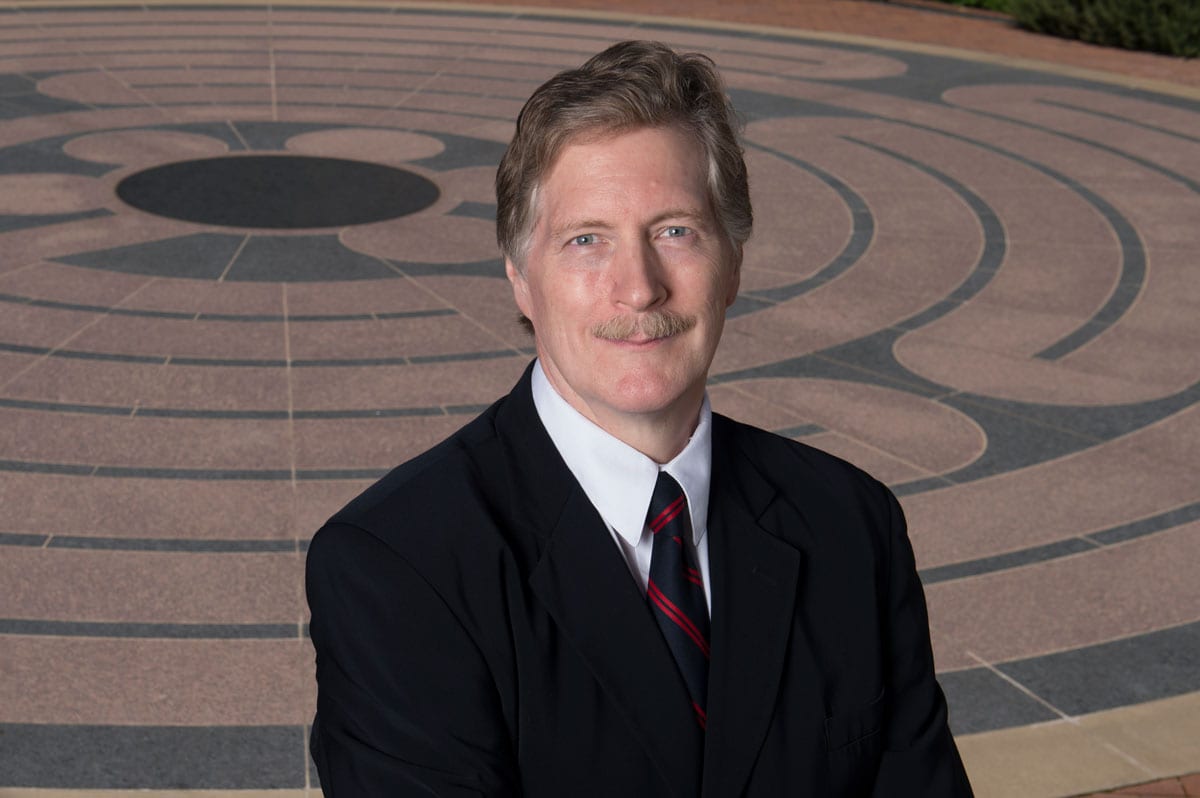In previous online versions of Perspective, I have written about what February’s United Methodist General Conference in St. Louis might mean for Perkins, I would like here to offer a personal reflection.
Among the experiences that have influenced my understanding of theological education are the years I spent on varied theological faculties — at Yale, Wesley, and Duke — along with teaching at Howard and at Methodist seminaries in South Korea and Russia. Even more formative in some ways was my own experience as a seminary student.
Like other of my classmates, I arrived with a strong sense of calling. I had attended innumerable Bible studies and worship services, had participated in a range of mission projects and conferences, had taught Sunday school and led a fellowship group, and had worked in a church since my freshman year in college. Nevertheless, seminary was not entirely what I expected. In particular, there was no party line when it came to a number of critical issues. Instead, I was expected to think critically, not simply to absorb the right answers. I had done this to an extent in college, of course, but the requirement was taken to a whole new level when it involved core beliefs and practices.
My first year in particular was challenging, both intellectually and spiritually. In retrospect, however, I am deeply grateful for that challenge. It started a process of reflection and growth that continues to this day. It is not that the center of my faith shifted radically. It did not. But I came to realize that I needed to think at a much deeper level, to take account of a much wider range of sources and influences. In particular, I learned that a satisfying theology requires the incorporation of all of one’s knowledge. Otherwise, one’s theology is —knowingly or unknowingly — in tension if not at war with the rest of one’s thinking. My seminary experience also taught me that it is possible to respect and appreciate others with whom I did not agree because, in time, I got to know them as people, not simply as positions.
While I greatly value those years, I will say also that they were made harder than they needed to be by what seemed a too common “us vs. them” mentality. The day I showed up on campus, I felt that I was being required — especially by other students — to decide which armed camp I would join. Perhaps it was not a fair impression, but that is how it seemed to me as a young student right out of college. I was full of questions, but I found that I could not freely ask them without risking rebuke. I came willing to be persuaded, but not wanting to be silenced.
I look back on that time with profound appreciation, not regret, and every difficult experience was counterbalanced by some other that was good. In particular, my seminary years gave me a strong sense for what theological education should be and in what spirit it ought to be conducted.
Regrettably, such a spirit was too little in evidence at General Conference. Given human nature, given the long history of conflict, given what was at stake, given the format for “conferencing,” perhaps that result was inevitable. Nevertheless, it was disappointing. I said to someone at the time, “I am glad that I am already a Christian, because there is little here that would convince me to become one.” There were exceptions, but they did tend to be exceptions.
Another disappointment, much less commented upon, was the level of discourse. I learned in seminary that a solid argument had to give fair weight to Scripture, tradition, reason and experience. (Or, one could argue, that while primary, Scripture has to be interpreted in light of tradition, reason and experience.) A great quantity of Scripture was cited, and there were many appeals to personal experience, plus a nod here or there to tradition. I do not deprecate these, but they form at best an incomplete argument. Notably absent from the debate on either side was an appeal to science, which is the most reliable (not infallible; scientists are humans, too) means by which to study nature. Any convincing argument about human sexuality has to reckon as much as reasonably possible with the full range of available knowledge on the subject. This is true regardless of one’s theological orientation, just as it would be for one’s interpretation of, say, Genesis 1-3.
Above all, I came away from St. Louis with renewed gratitude for Perkins. We are by no means perfect, but we do endeavor to be a community in which diverse opinions may be voiced and sincere questions may be addressed with grace. Moreover, we strive to teach our students to think both deeply and broadly, so that they might cultivate a theological understanding that encompasses all of reality. To do either — much less both — takes hard work and requires emotional and spiritual maturity, but anything less is both anti-intellectual and sub-Christian. It is unsurprising that we sometimes fall short of this high ideal. More remarkable are the many ways in which we already come close. I am incredibly grateful to be part of such a school.
Grace and peace,
Craig C. Hill
Dean, Perkins School of Theology
Southern Methodist University

